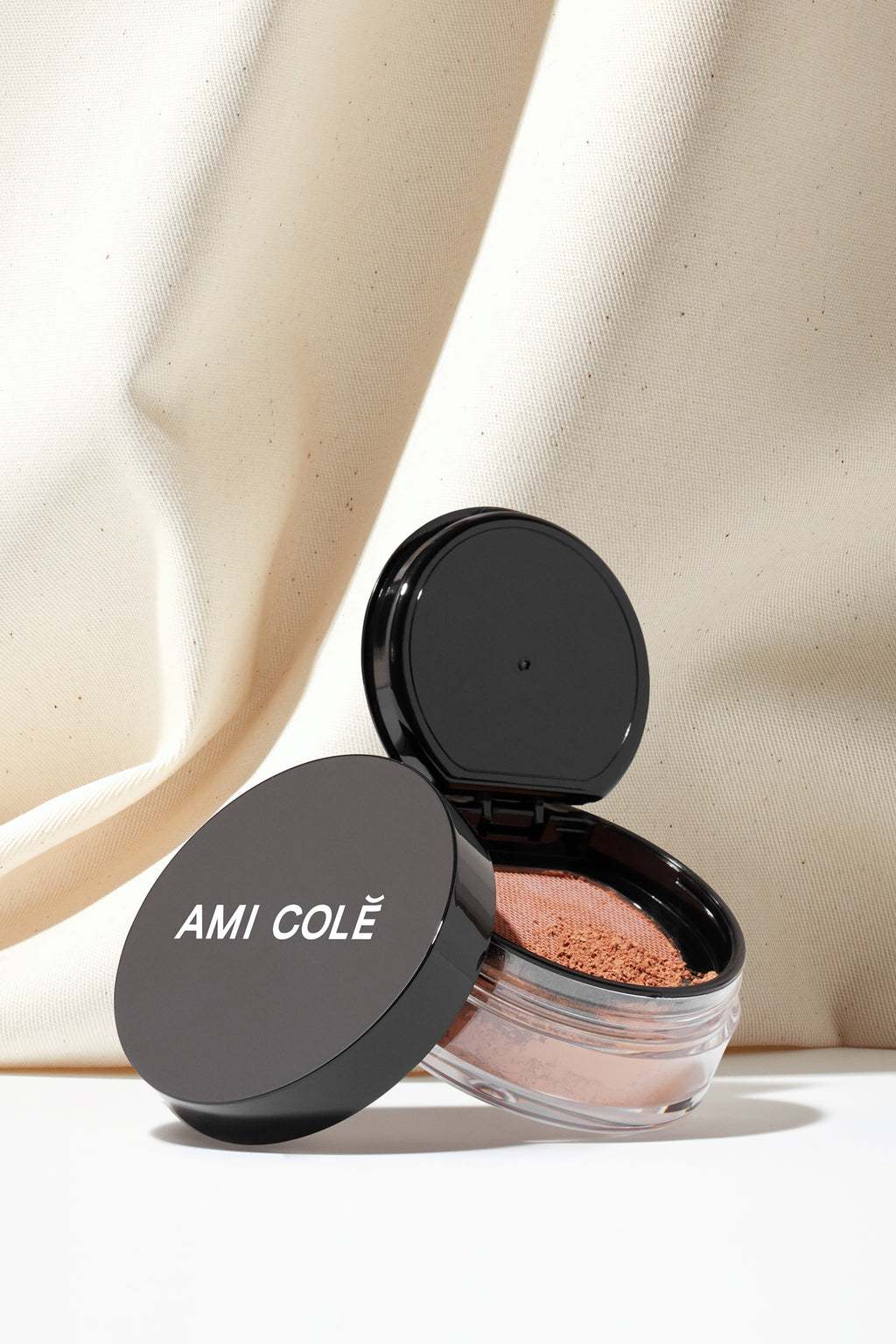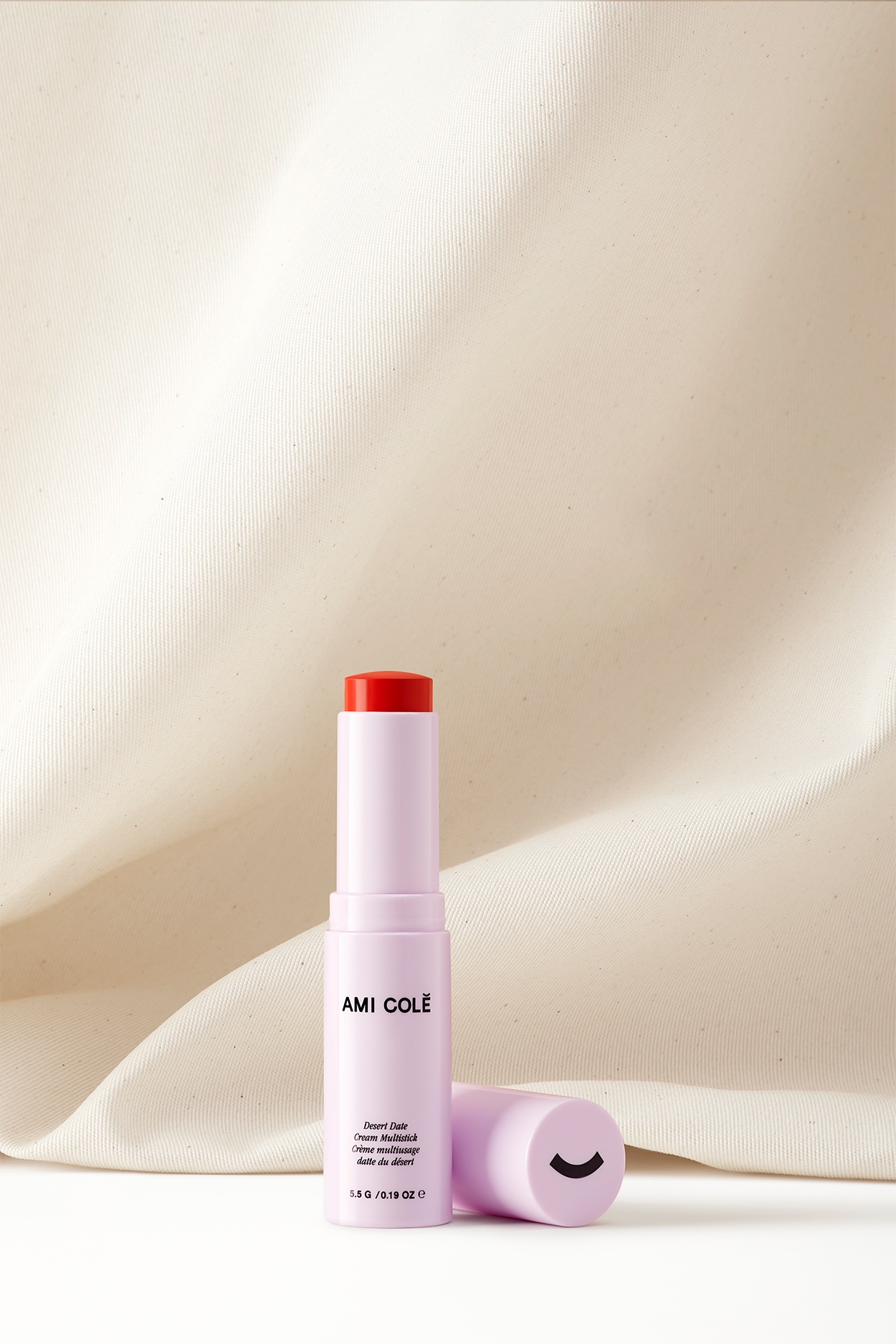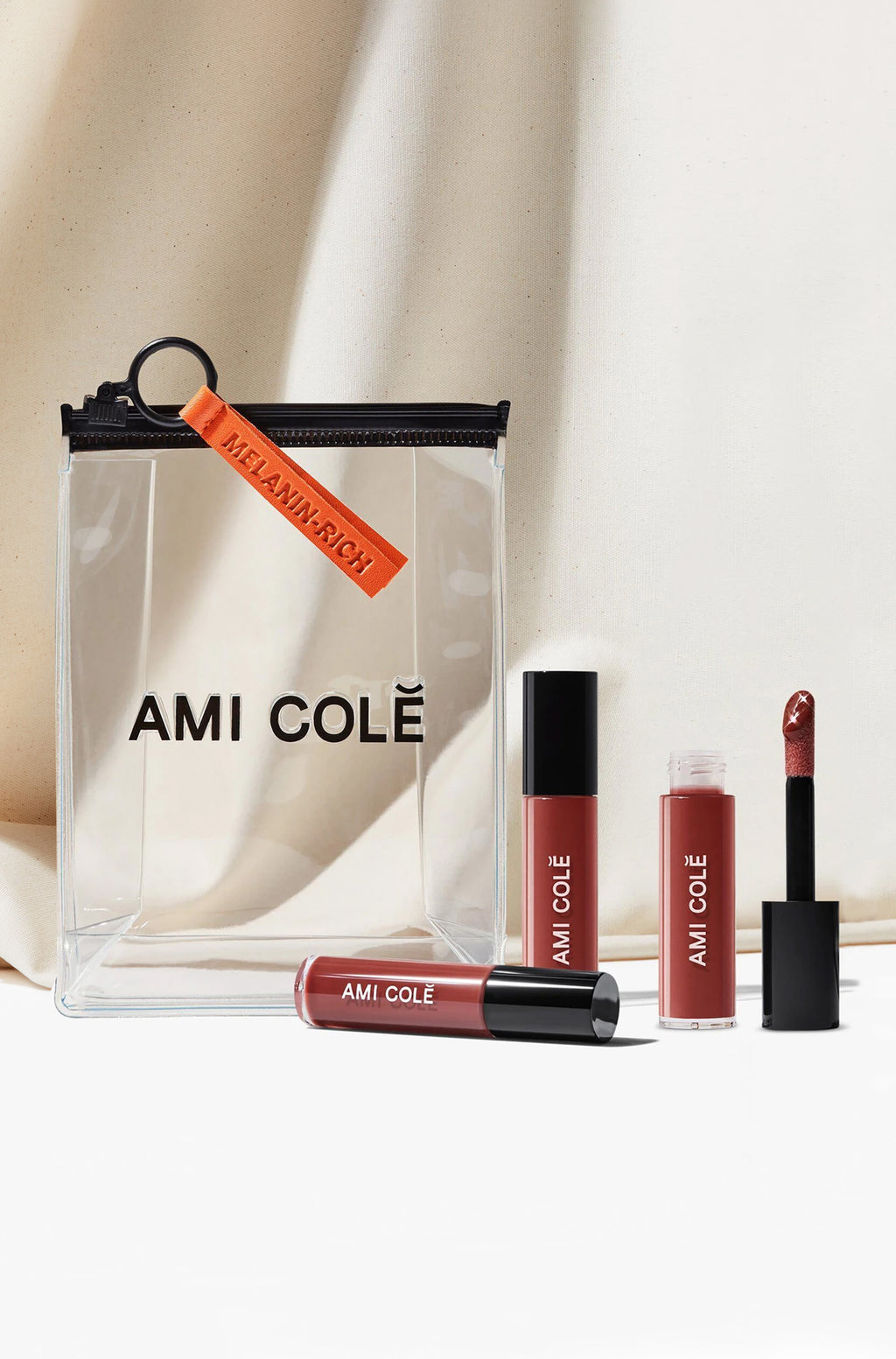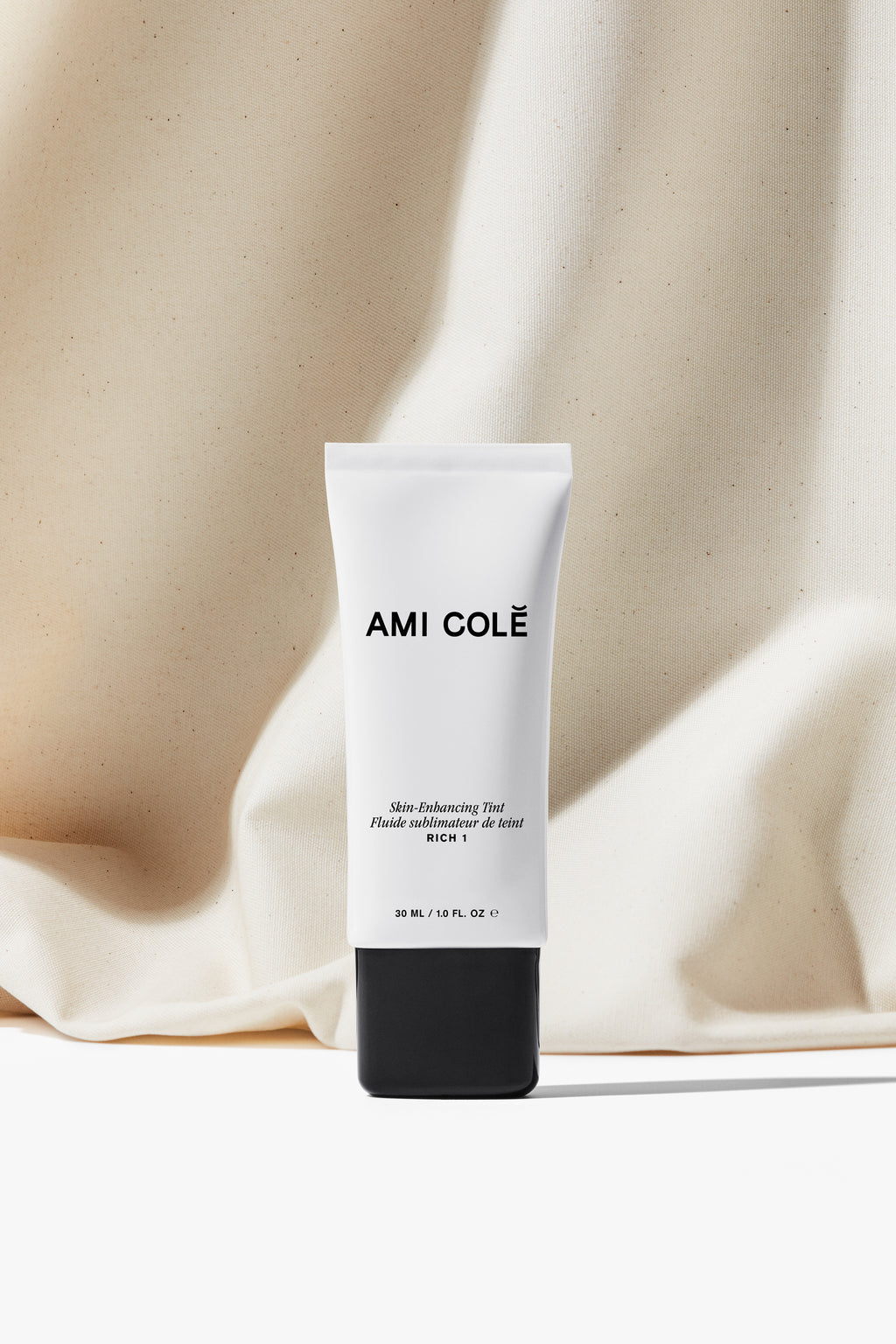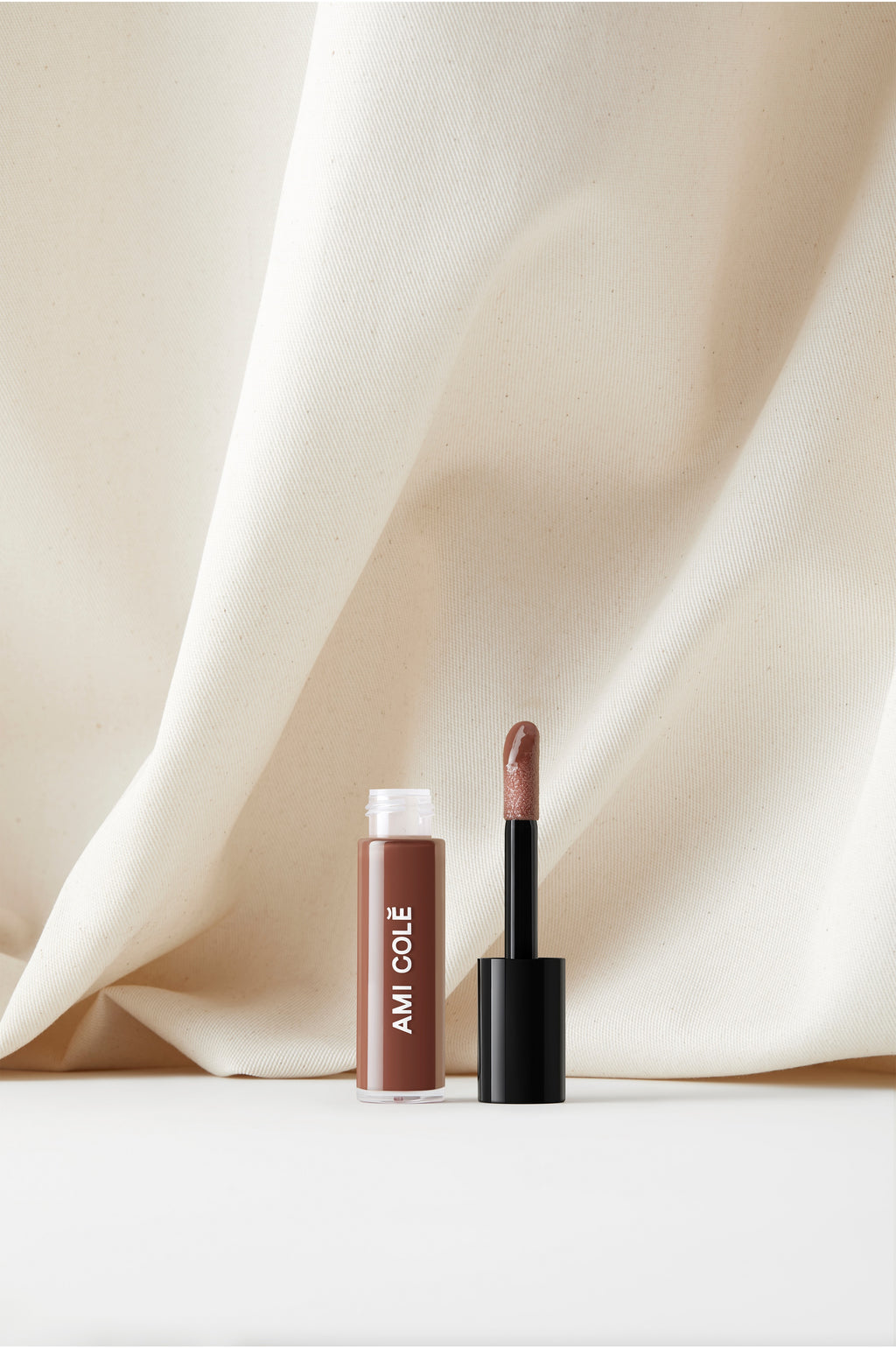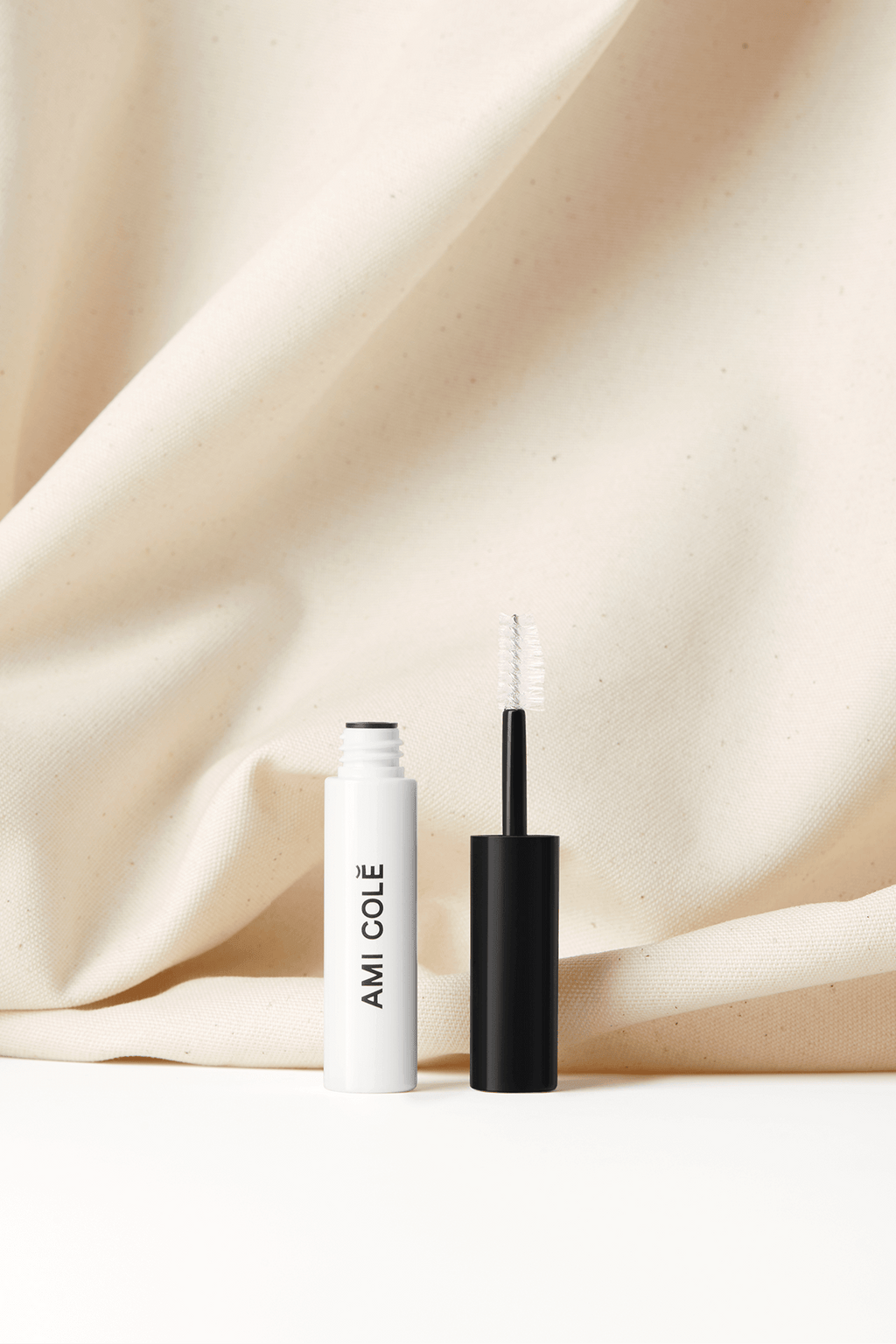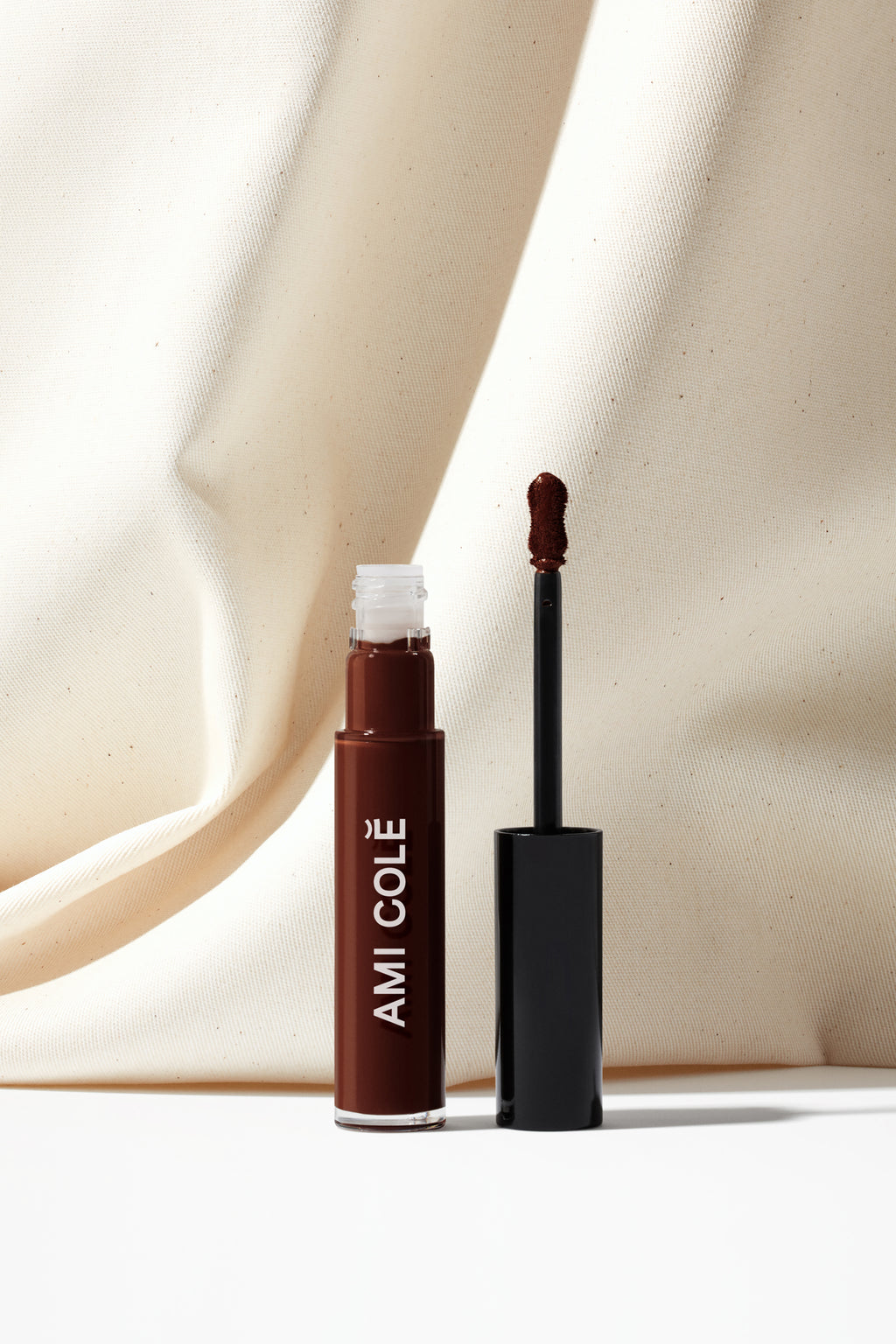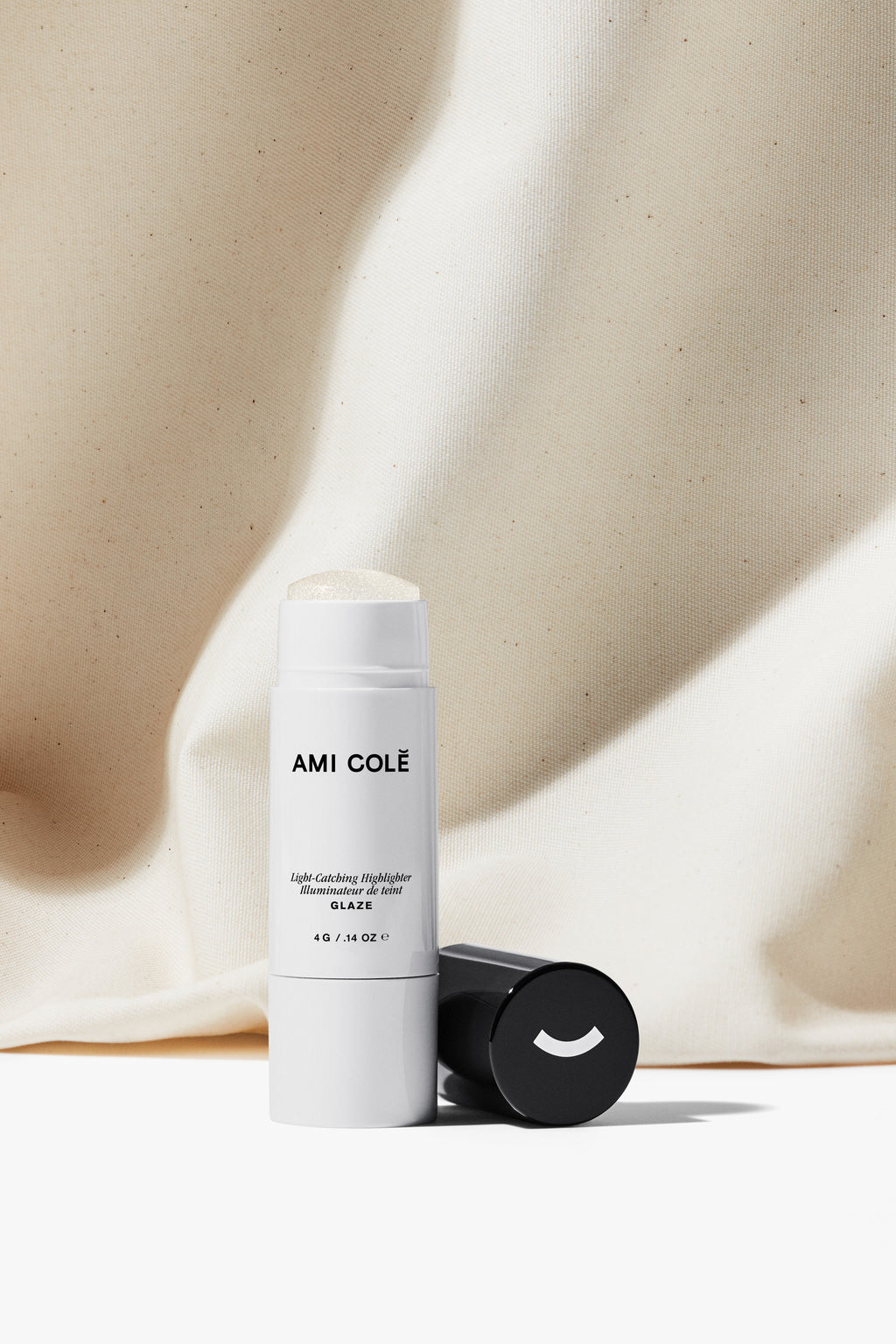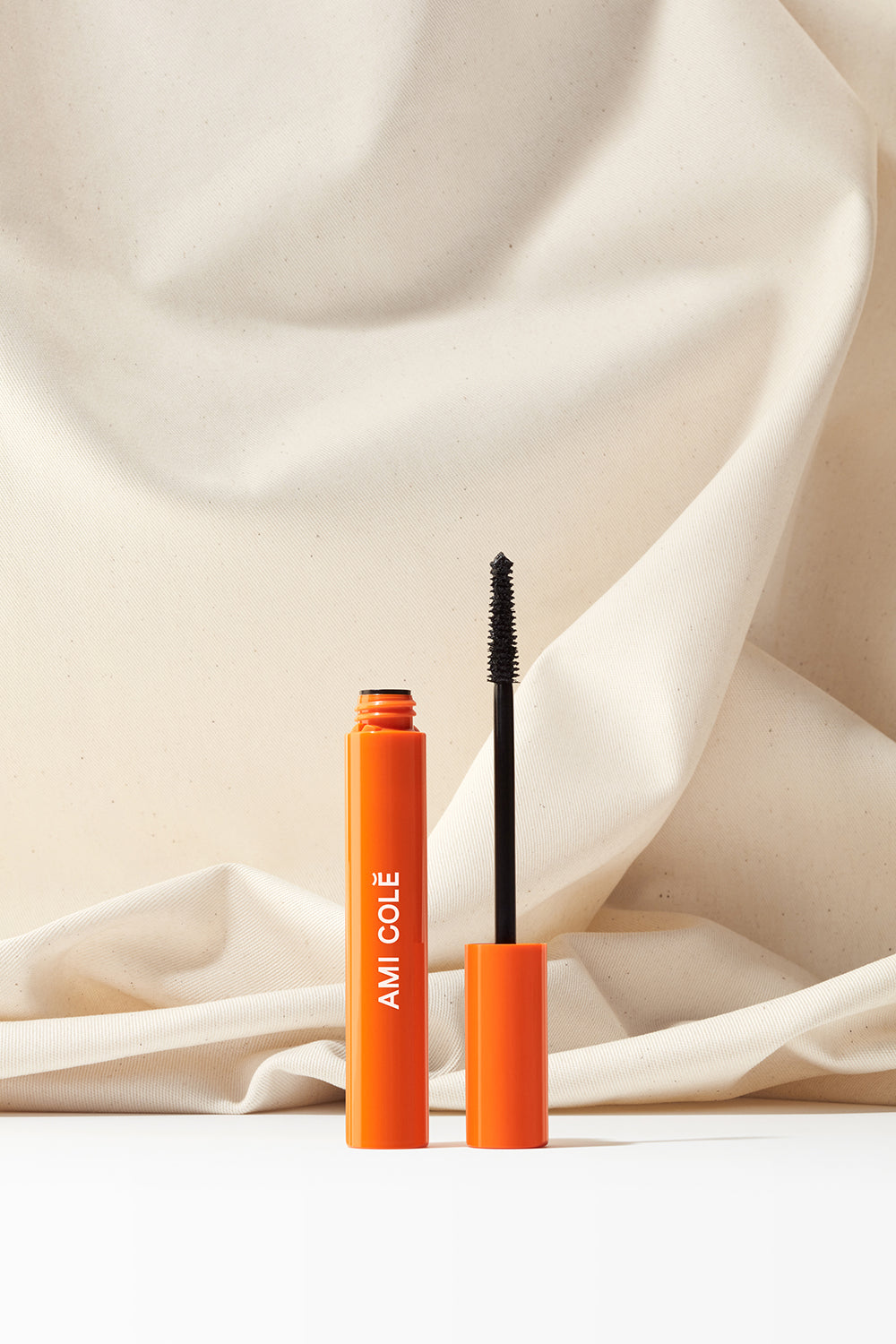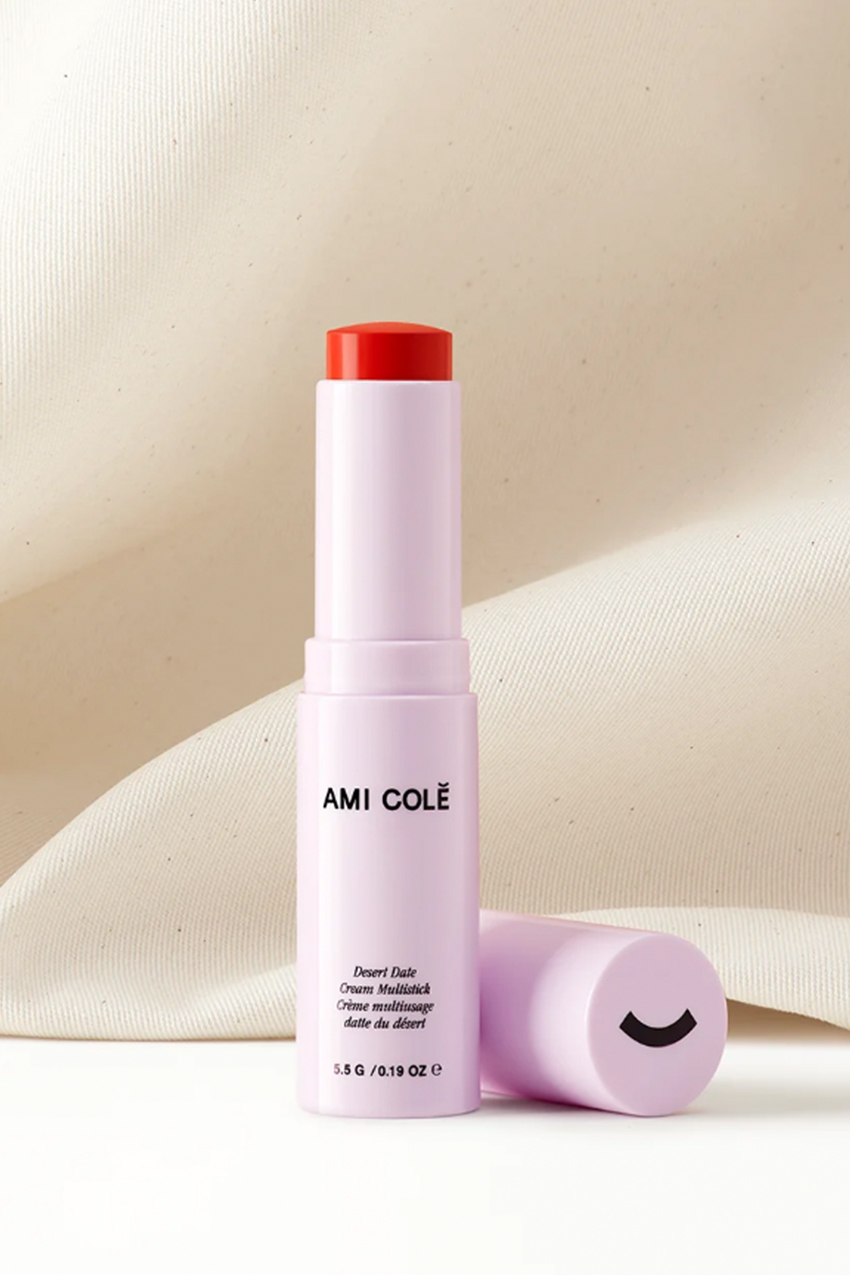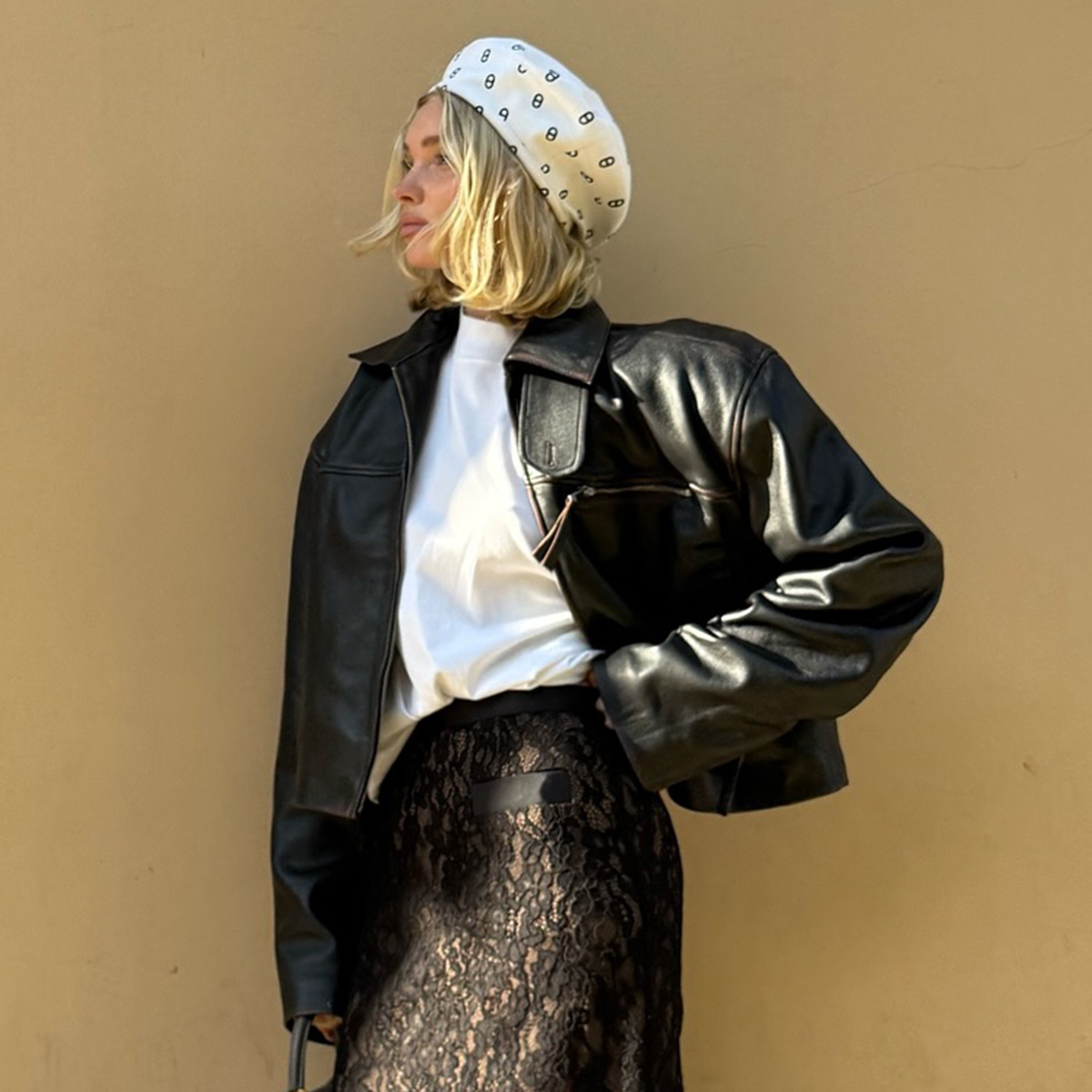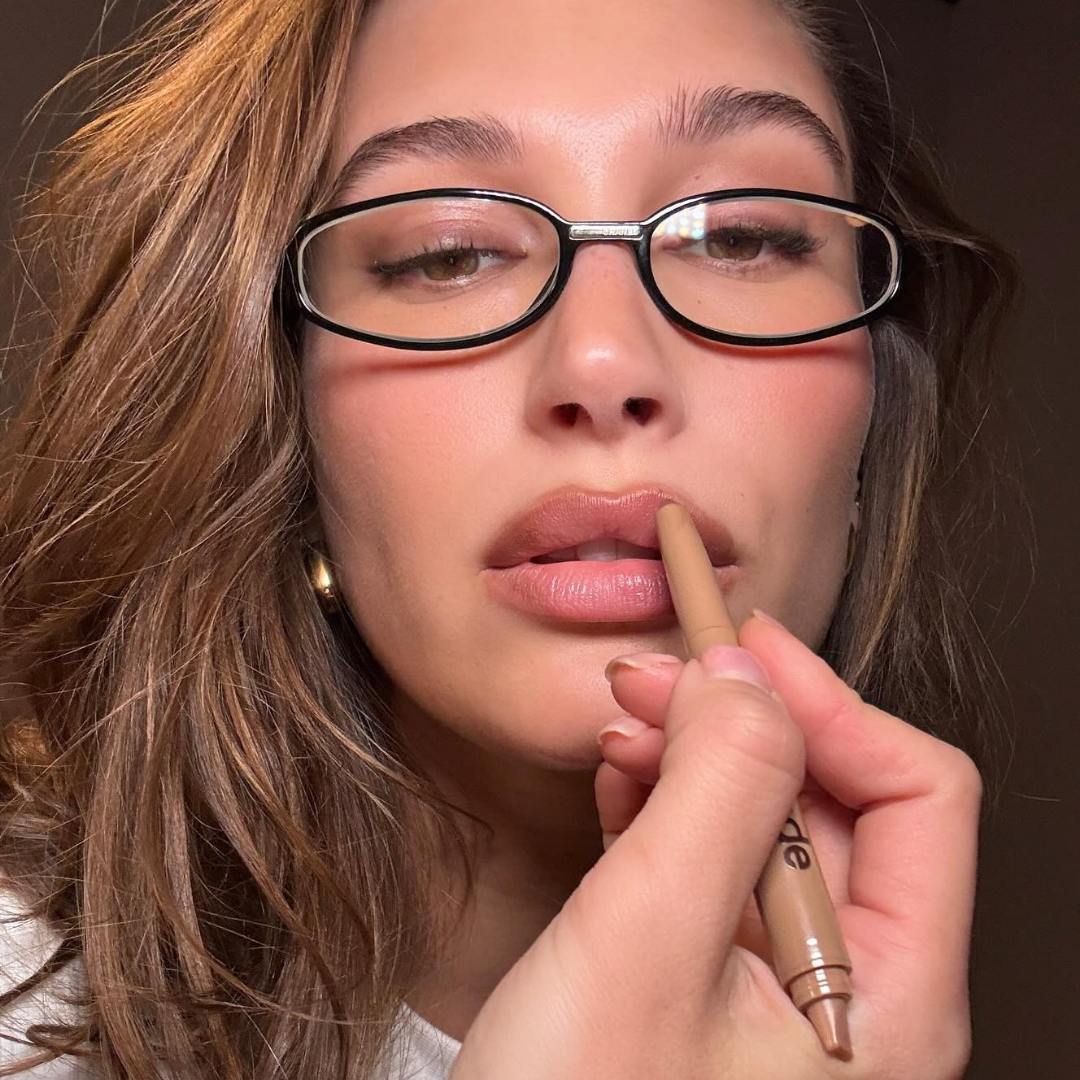Diarrha N'Diaye-Mbaye Wants to Be the North Star for Your Beauty Routine

Self-proclaimed "salon baby" Diarrha N'diaye-Mbaye started her beauty brand on the principle that you can show up every day as yourself. Her brand, Ami Colé, is about wearing the best version of your skin, and there's not much more powerful than that.
A first-generation Senegalese American, N'diaye-Mbaye grew up in Harlem spending her younger days admiring her mother and aunt's commitment to aesthetics and self-care. This deep, familial understanding of the importance of feeling empowered by your beauty and the processes you use to enhance that for yourself led her to start a breakthrough brand in the uncertainty of COVID-19. Not to mention she's an industry veteran and well-researched "product girl" who was already creating a hybrid of healthy skincare and natural makeup for her own routine.
With so many limitations on non-toxic beauty for melanin-rich skin, and an expansive, underserved audience, N’diaye-Mbaye created a thoughtful, clean, and accessible product line that has beauty insiders swooning. For N'diaye-Mbaye, and so many of us, beauty is truly an emotional and cultural experience. It is personalized by your upbringing, influenced by culture, and designed by you to express the truest version of yourself on a daily basis.
N'diaye-Mbaye and I sat down to discuss founding the brand, the significance of her culture and upbringing on her beauty philosophy, and issues plaguing the beauty industry.
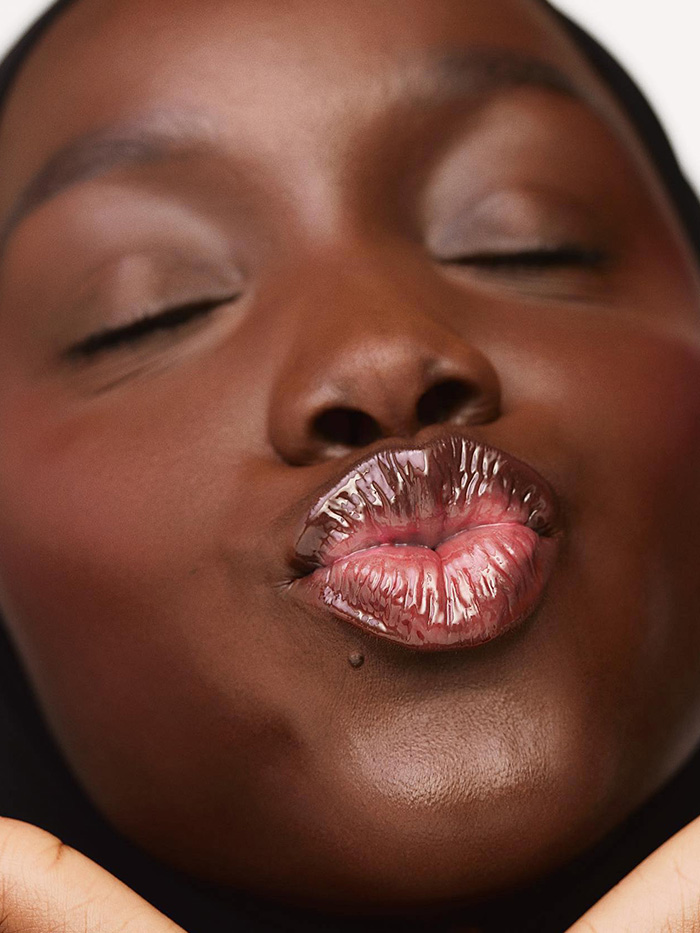
First, I wanted to get the backstory of you starting Ami Colé. What led you to that and what was your philosophy for starting the brand?
I think that, like many founders, it was pretty selfish. I was looking for solutions for my skin tone and makeup style. I've always considered myself a "product" girl; I could talk about products all day. But, before the birth of Fenty and formerly Pat McGrath, it was hard to find products for everyday girls like myself that need a straightforward approach to show up in the world. I found myself literally for a decade running the gamut, testing new products, going into the stores, using concealer, and mixing it with oil to enhance my skin. I think that coupled with the frustration about the movement in the cream beauty space compelled me to start the brand.
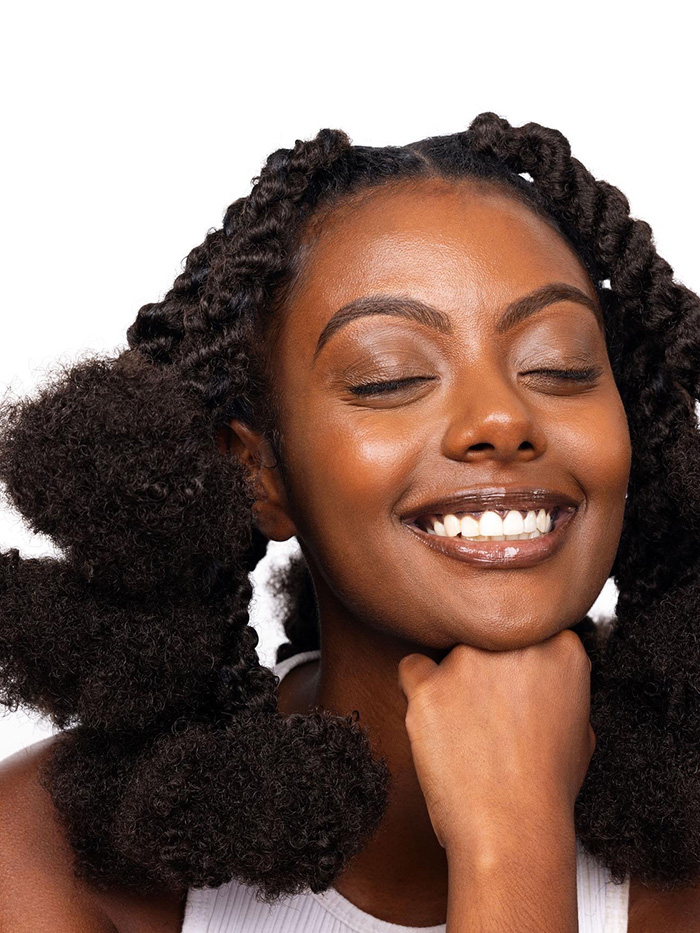
We've seen more strides in inclusivity in the makeup space, but were there any other movements that inspired you to find the brand?
I knew from my natural hair journey that there were still many more aspects of my beauty routine that I could "clean up" or try my best to be as efficacious and non-toxic as possible. Historically, the products catered to women of color are typically toxic. We've even seen recent lawsuits and health issues reported from them, so I was trying to be a part of changing that conversation.
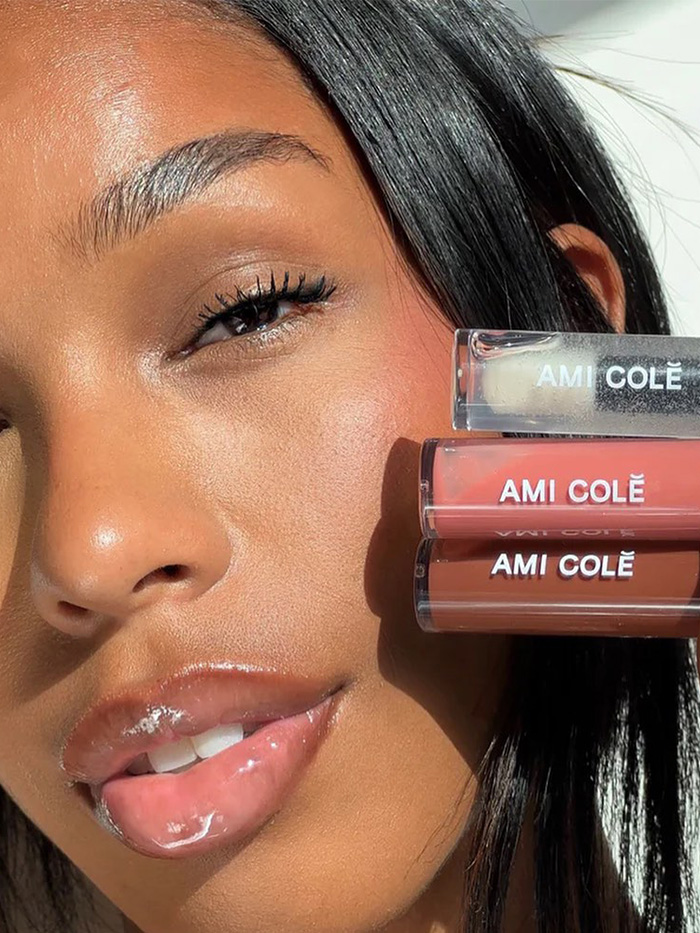
Besides providing an inclusive shade range and addressing toxins in makeup, why was it important for you to break into the beauty space?
I'm a first-generation Senegalese American and I grew up in the heart of Harlem, so the pan-African culture surrounded me. I found it so beautiful to connect and weave different versions of Blackness that we don't typically see in mainstream pop-culture media. And through my brand, I wanted to share the beauty of the African diaspora through makeup.
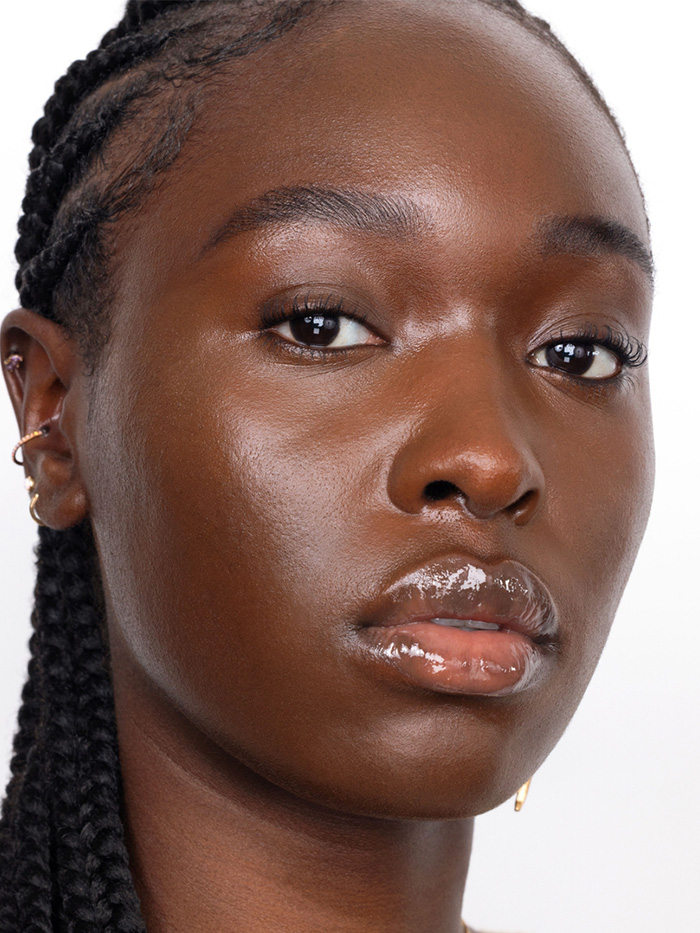
Do you think that beauty trends or aesthetics offset progress in the industry?
It's a very nuanced and layered conversation because it's hard to think about what I enjoyed and ingested culture-wise growing up. Whether it's MTV, the J.Crew catalog in the age of Jenna Lyons, or the Delia's catalog, you saw these jovial, carefree girls with their wispies, and all these things. Not to mention how huge the French-girl beauty aesthetic became, where the focus was on having clean skin and not trying too hard, and we never really had permission to do that. It’s an aesthetic that I wanted, but wasn’t what I saw around me. I saw my aunties, and mom wearing the classic red lip and the classic red nail polish and pressing their hair every Sunday. And seeing how important aesthetics was a part of her routine, I did not see that replicated outside of my home. I feel like we, especially Black culture, when it comes to clean girl aesthetics, we're the microcurrent and the underbelly of what moves that and what's inspired that. Unfortunately, those small microtrends bubble up to the top, and suddenly, everyone just sees the surface level. No one has any idea what's going on at the root of it or where it comes when it gets to that stage it's very hard to trace it back because some people don't want to hear it.
I remember working at a huge conglomerate, and we were selling haircare products. At the time, we were creating tutorials on how to get box braids, and the marketing collateral was "how to get Kim Kardashian–inspired braids.” I remember the uproar that happened in the comments, and it's ironic that I was working for this brand, on that team, obviously, being a part of the problem. But on the flip side, having experiences as a woman of color, who grew up as a salon baby in a hair braiding shop understanding the problem. I was watching my team fight tooth and nail, like, "No, Kim Kardashian made this popular," even though it was rooted in Black haircare routines. So part of me feels like the conversation sometimes is so counterproductive because some people just don't want to see it, especially when said influencer doesn't attribute it to the source. Then the other part of me is like, "Hey, maybe it's our job to scream from the rooftops and showcase the true DNA and fabric of it." I think everyone shares this frustration, it’s a constant state of tug-of-war, every few days when there is a "new” trend.
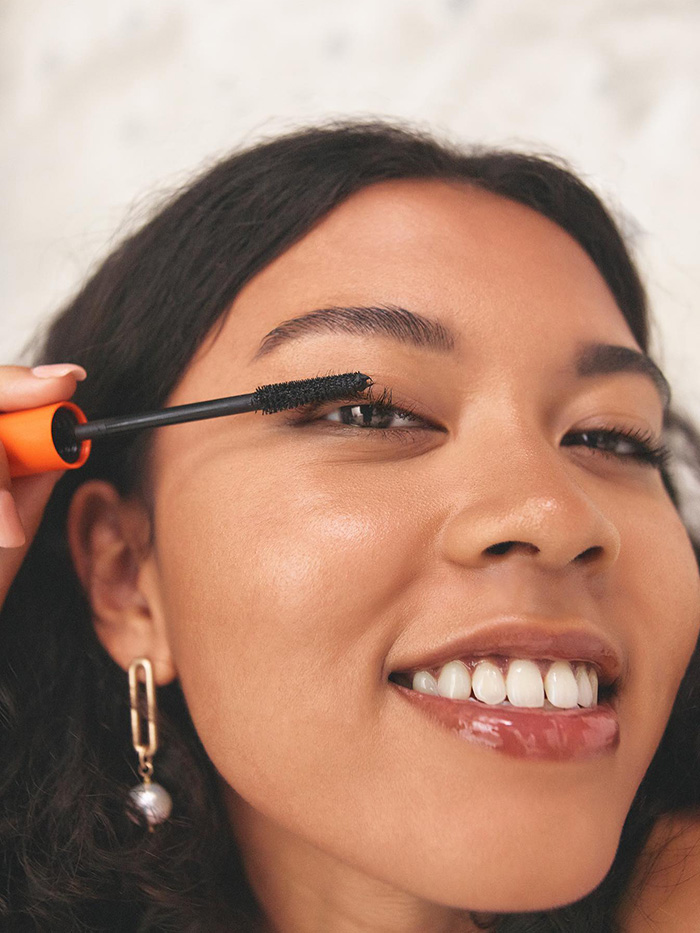
How do you as a brand adjust to trends, fight trends, or just stay true to your own identity?
You'd never see those semantics on our feed or in our copy. We don't even acknowledge it to be frank, because, number one, it's not true to our core. It's distracting, once again; I think Ami Colé is kind of like that walking down a street head nod when you see someone that looks like you or someone that feels familiar. We want to be that brand that is the older sister or the girl at brunch that's giving you new tips and tricks on how to achieve the optimal goals that you're looking for.
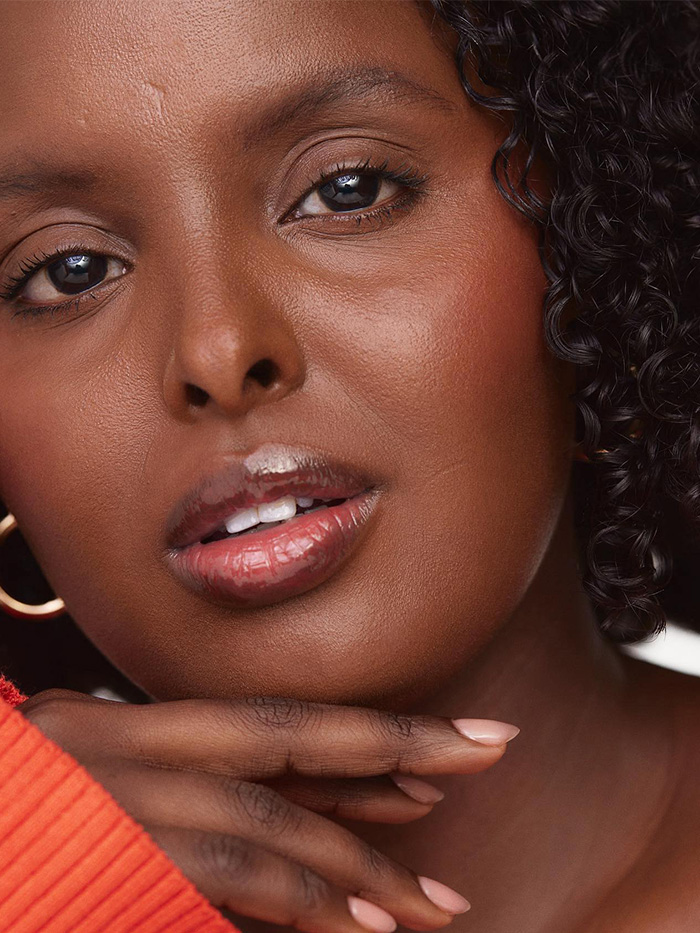
What would you say your personal beauty motto is?
It's so emotional thinking about it because I genuinely want to be happy with what I see when I look in the mirror. Historically, makeup has been like an armor you must wear and present yourself. If you're feeling bad, you say to yourself, let me wear this lipstick. But what does it mean to appreciate my features and skin tone? As someone coming from West Africa, where skin bleaching is an epidemic—almost north of 50% of women in Senegal bleach their skin.
So for me, I wanted to bask in my skin tone and pare it back to see me and stand in my light. My north star, when it comes to beauty, is that I try to find ways to enhance what I already have versus needing to transform. I think there's beauty in having the option to be me, be okay with that, and be enough as-is.
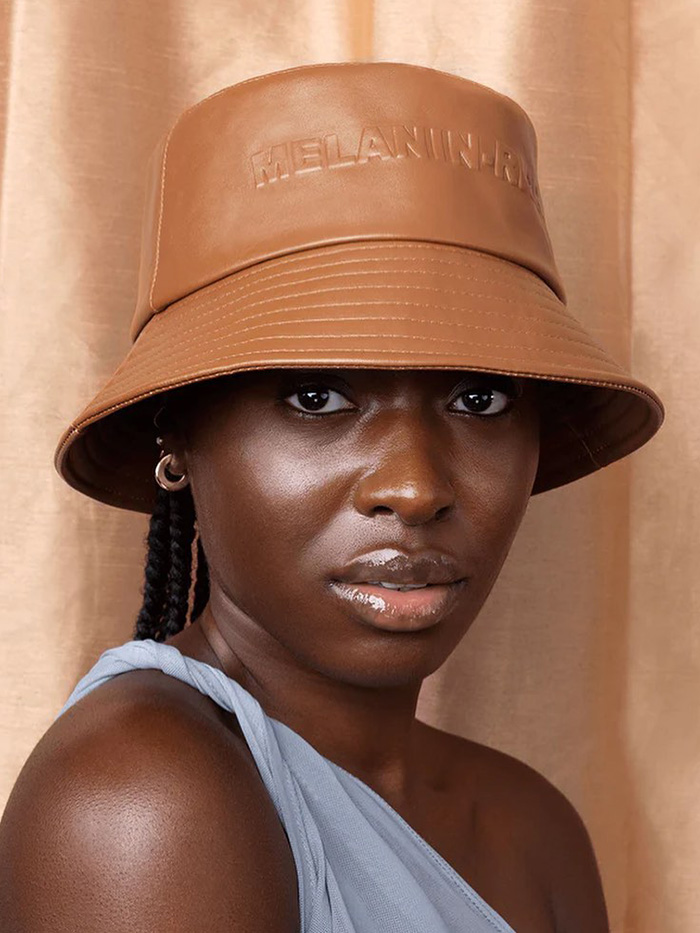
What do you think the industry could be doing better? And how do you see your brand's role in improving that space?
Listen, the whole of the United States will be at least 50% multicultural by 2026. But it's no longer okay to not represent as many versions of diversity as possible. And while not every brand will hit that needle, we need to create space for other brands to identify their "niche.” I think there's a lot of space for it, and the beauty industry continues to grow, despite financial uncertainty. For the industry to be better, they must be true allies by giving "specialized” brands (meaning those catered to communities of color) a level playing field in terms of equity. It’s one thing for a brand to be in Sephora, but how do you thrive in it? How do you become on track to be a lucrative and strong business? Historically, only specific cohorts of people were given a great head start in the industry, so we now need that to be given to us too. We need a couple of people to turn back and pull up those that deserve space.
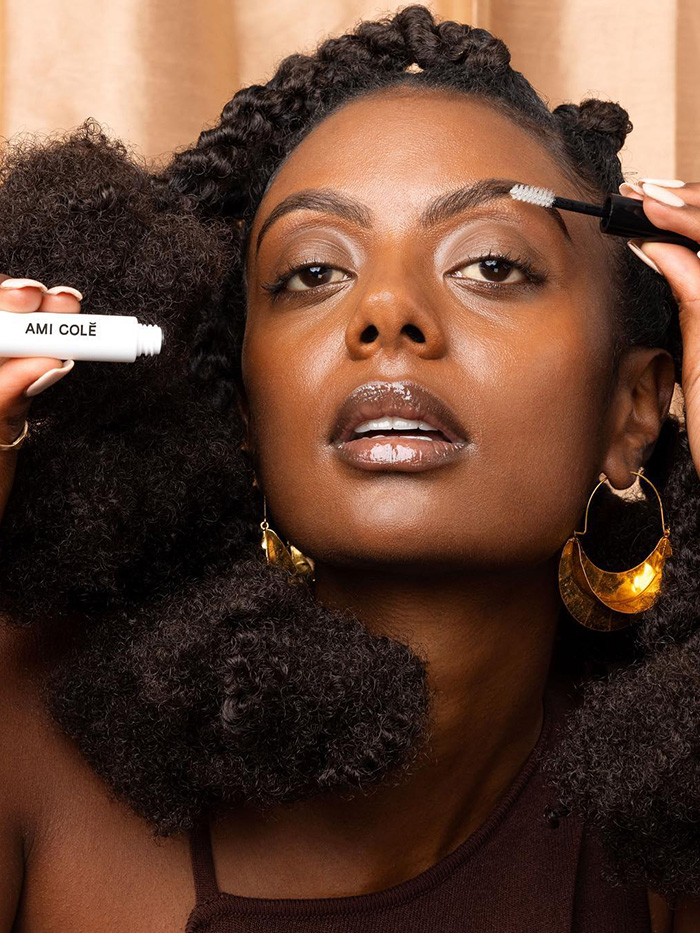
What is next for Ami Colé? What are your goals?
We launched during COVID-19 and during the height of a very racially-charged conversation and climate. I think everyone was waiting for proof of concept and proof that it could thrive not only from a product and brand perspective. So now that we're here, now that we have proof of concept and traction, we’re now asking ourselves, how do we double down and make sure that we're still creating the best-edited quality products that we can? And our second goal is really growing distribution and meeting our customers wherever they are. For us, most immediately, that's focusing on our partnership with Sephora, ensuring that we bring that consumer that never has been in a Sephora to us because there are new options for them to purchase products. Filling your makeup bag with different options that are true to identity and just learning.
I think we're just constantly learning and listening and using our feedback loops. Whether it's email, DMs, or comments on social media, we’re always challenging ourselves to find new ways to continue to build with our audience as we scale (which is a very hard thing to do). So we're just training ourselves and the team on how to be cognizant of that and really make sure that community still is the core of our business.
Shop more of Ami Colé's beauty line:
Next: I Went to NYFW, and These Are the 6 Beauty Trends That Are Set to Dominate
Copelyn is a freelance fashion and accessory editor who formerly worked for Who What Wear as an associate shopping editor. Before her time at Who What Wear, Copelyn was at Bustle Digital Group, working on the accessory market for cover shoots and fashion features across Nylon, The Zoe Report, Bustle, Romper, and Elite Daily. Copelyn also previously worked at InStyle and Cosmopolitan in the fashion departments. Copelyn has a journalism degree from the University of North Carolina at Chapel Hill. In her spare time, she freelances in graphic and web design in the fashion space and loves to upcycle clothing, home décor, and sneakers.
-
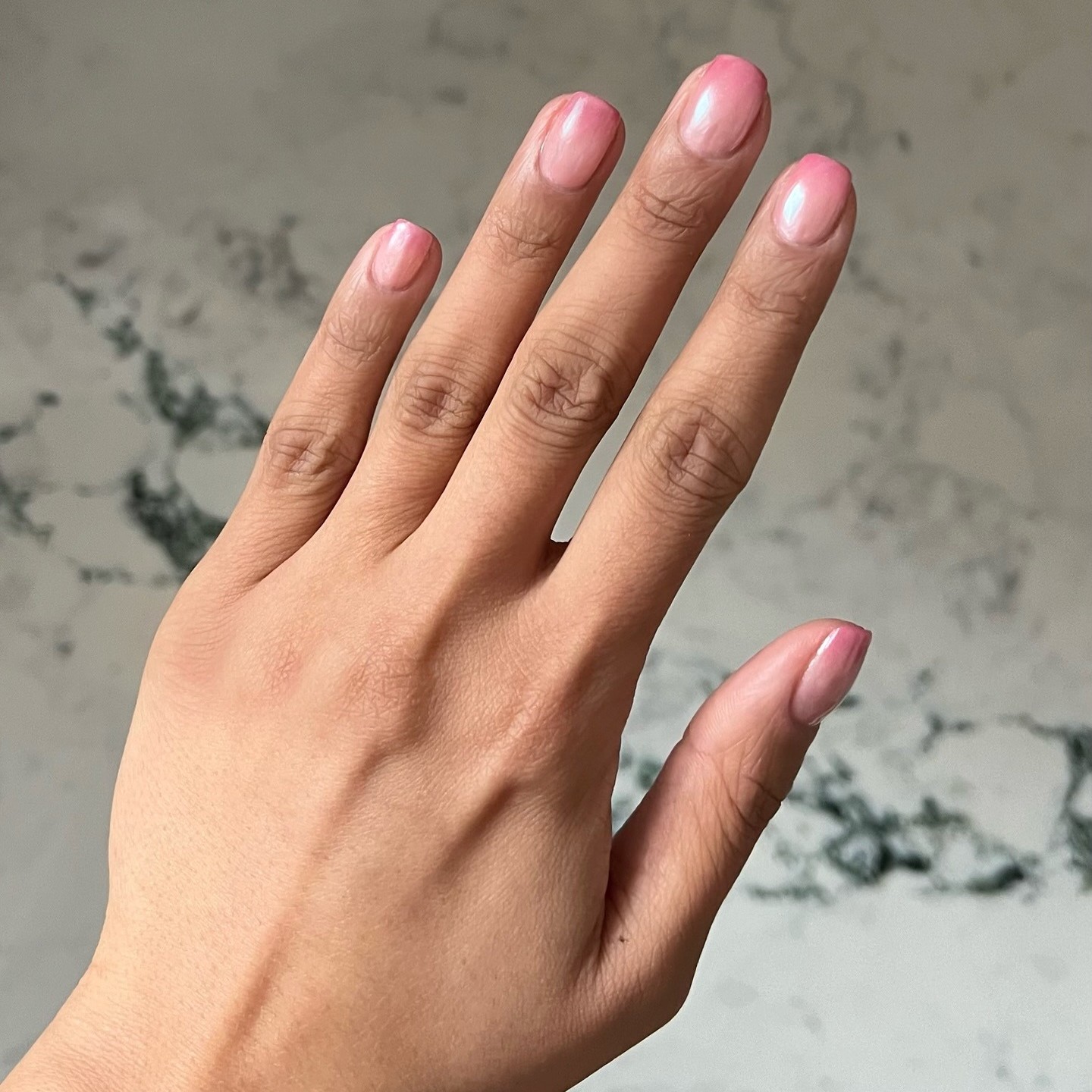 I Know Expensive-Looking Nails When I See Them, and I’m Swooning Over This “Candy Floss” Mani
I Know Expensive-Looking Nails When I See Them, and I’m Swooning Over This “Candy Floss” ManiI couldn't hit "save" fast enough.
By Jamie Schneider
-
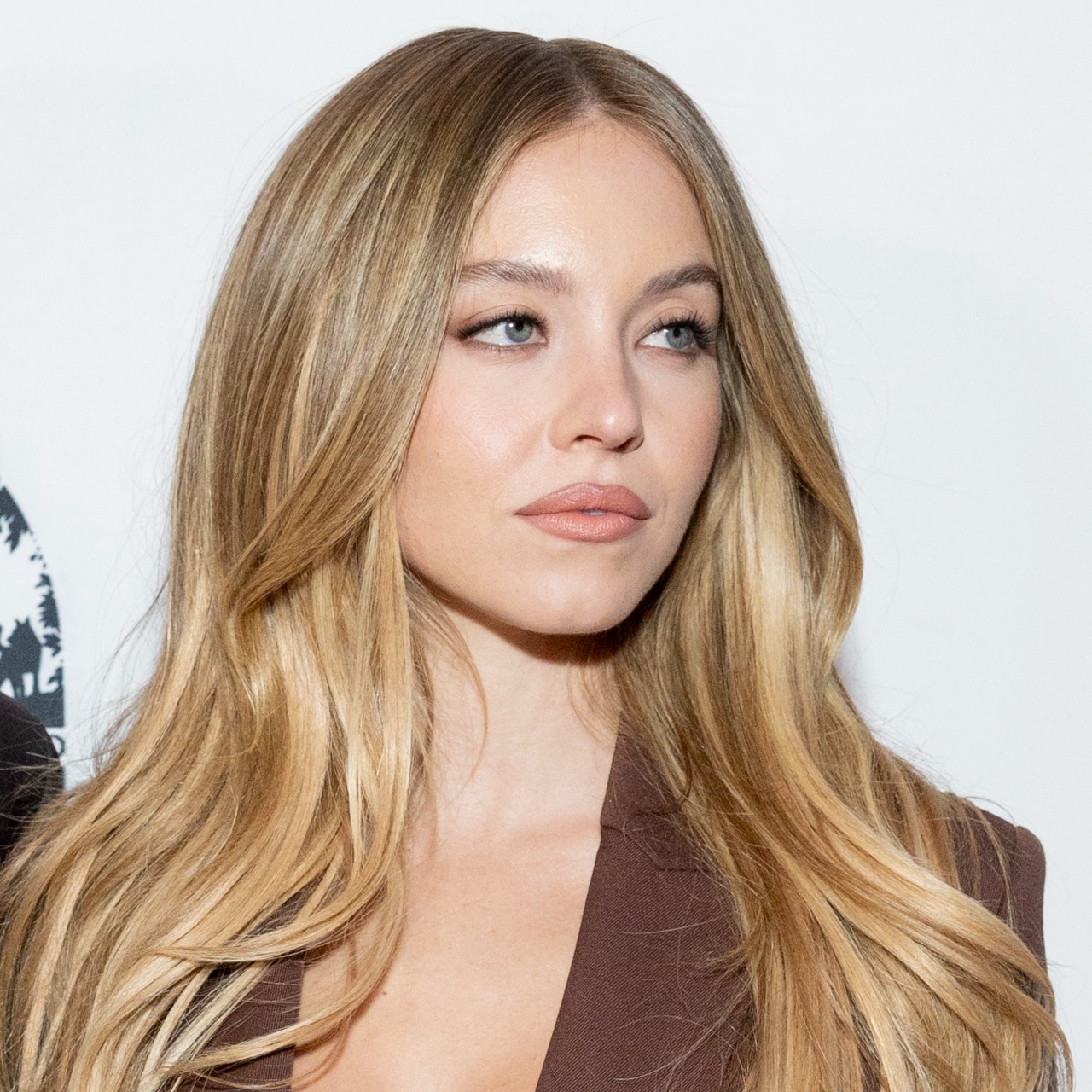 Sydney Sweeney Just Cosigned Chocolate Croc Nails (Plus a Matching Corset) for Spring
Sydney Sweeney Just Cosigned Chocolate Croc Nails (Plus a Matching Corset) for SpringI'm officially copying it all season.
By Jamie Schneider
-
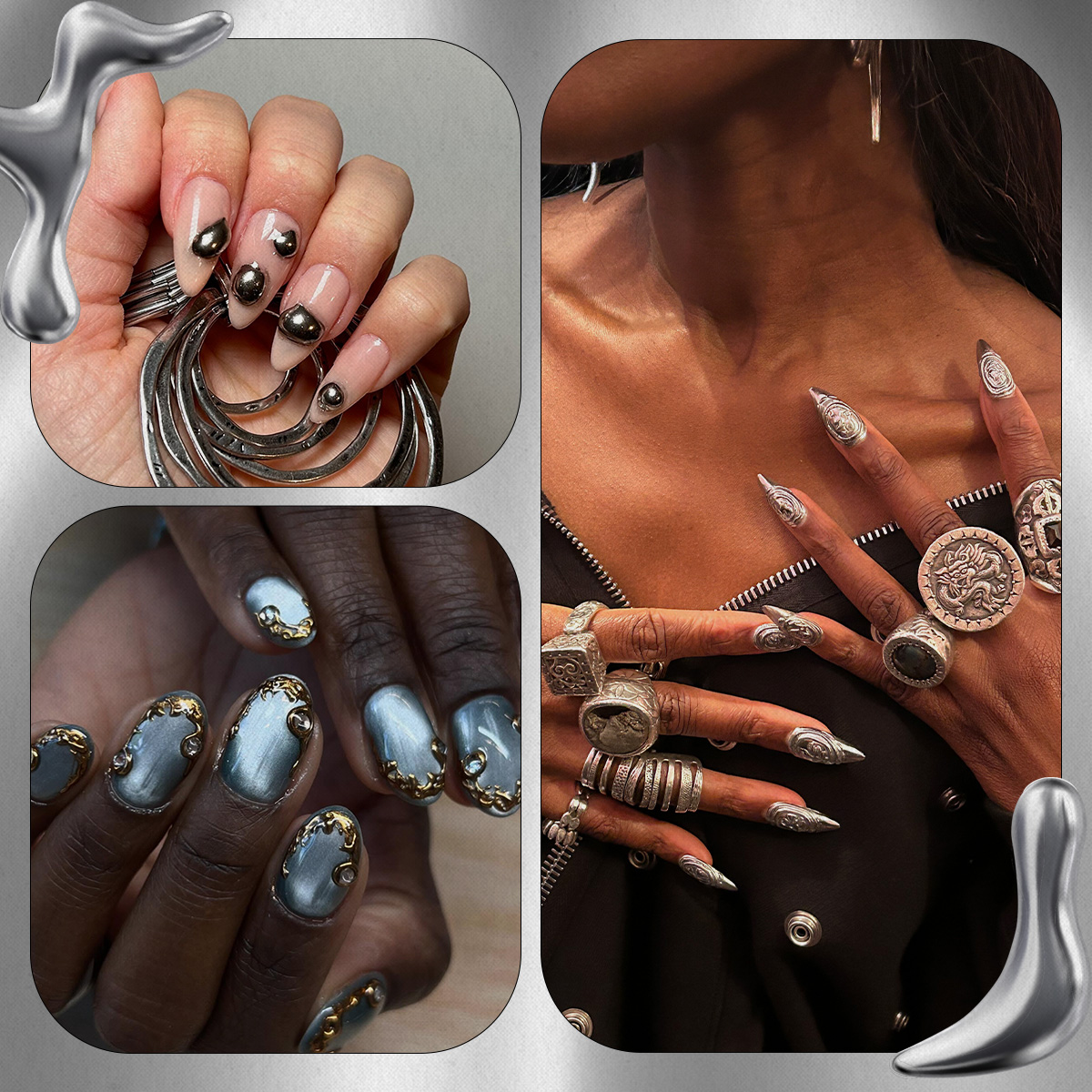 I'm Bored of Demure Manicures, so I Tried the Ornate Spring Nail Trend That's All Over Pinterest
I'm Bored of Demure Manicures, so I Tried the Ornate Spring Nail Trend That's All Over PinterestI can't get enough.
By Alyssa Brascia
-
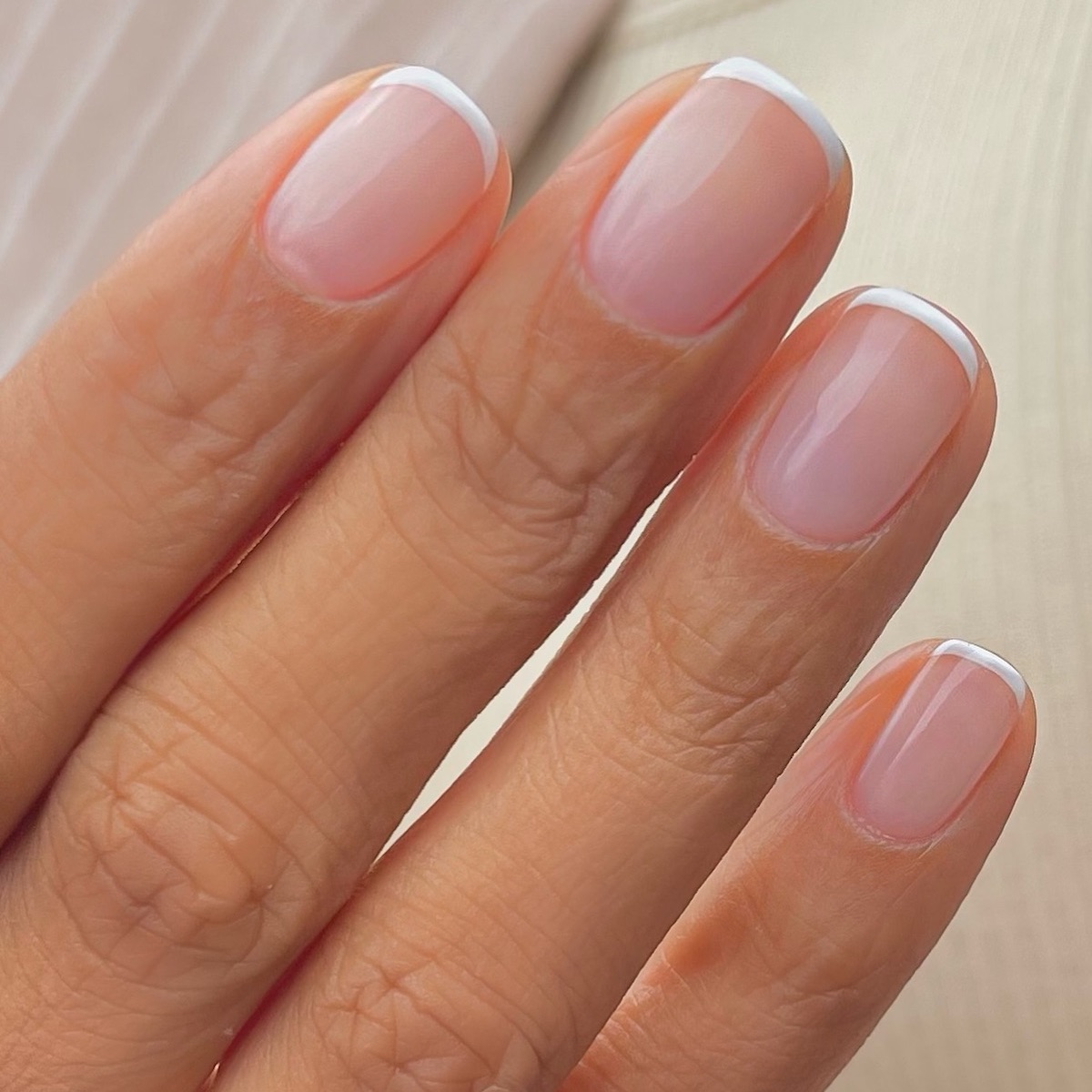 The "Baby French" Is Officially Spring's Most Elegant Nail Trend—Hailey Bieber Agrees
The "Baby French" Is Officially Spring's Most Elegant Nail Trend—Hailey Bieber AgreesGo ahead and book that first spring nail appointment.
By Kaitlyn McLintock
-
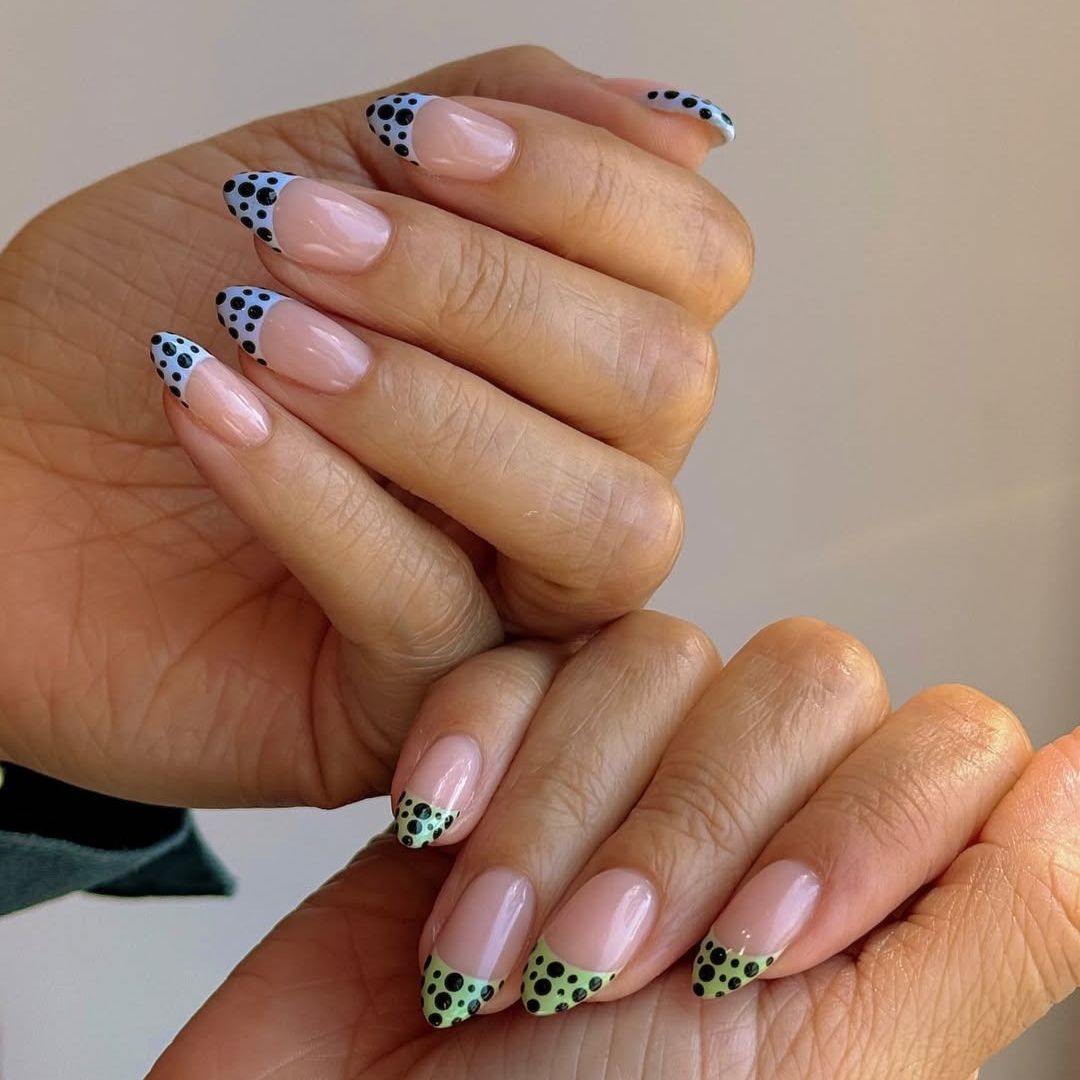 I Thought Easter Nails Were Tacky Until I Saw These 9 Elevated, Effortlessly Chic Designs
I Thought Easter Nails Were Tacky Until I Saw These 9 Elevated, Effortlessly Chic DesignsYou’ll want to bring these pics to your next nail appointment.
By Alyssa Brascia
-
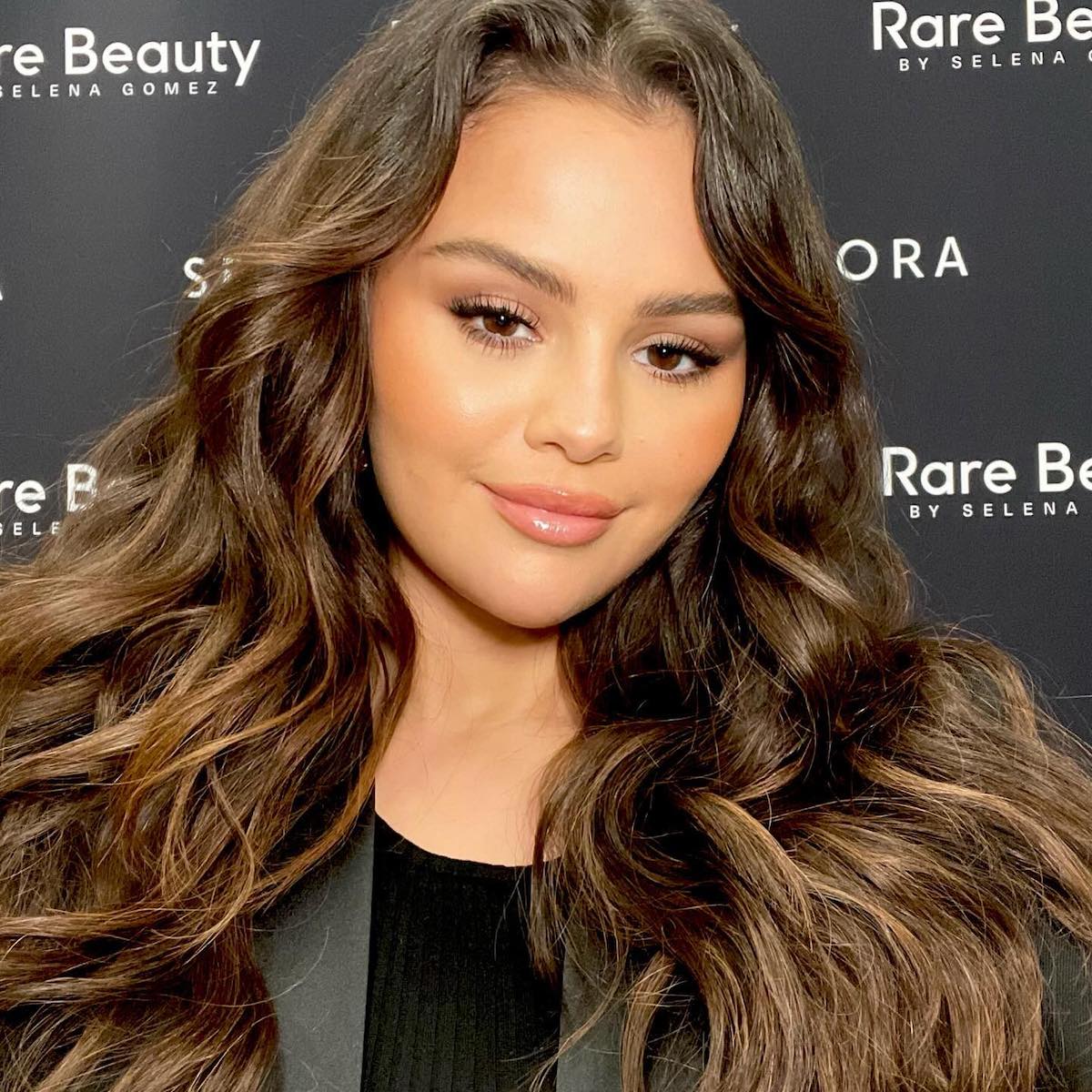 Selena Gomez's Date-Night Nail Polish of Choice? This Nostalgic $13 Shade of Cherry
Selena Gomez's Date-Night Nail Polish of Choice? This Nostalgic $13 Shade of CherryI'm buying a fresh bottle.
By Kaitlyn McLintock
-
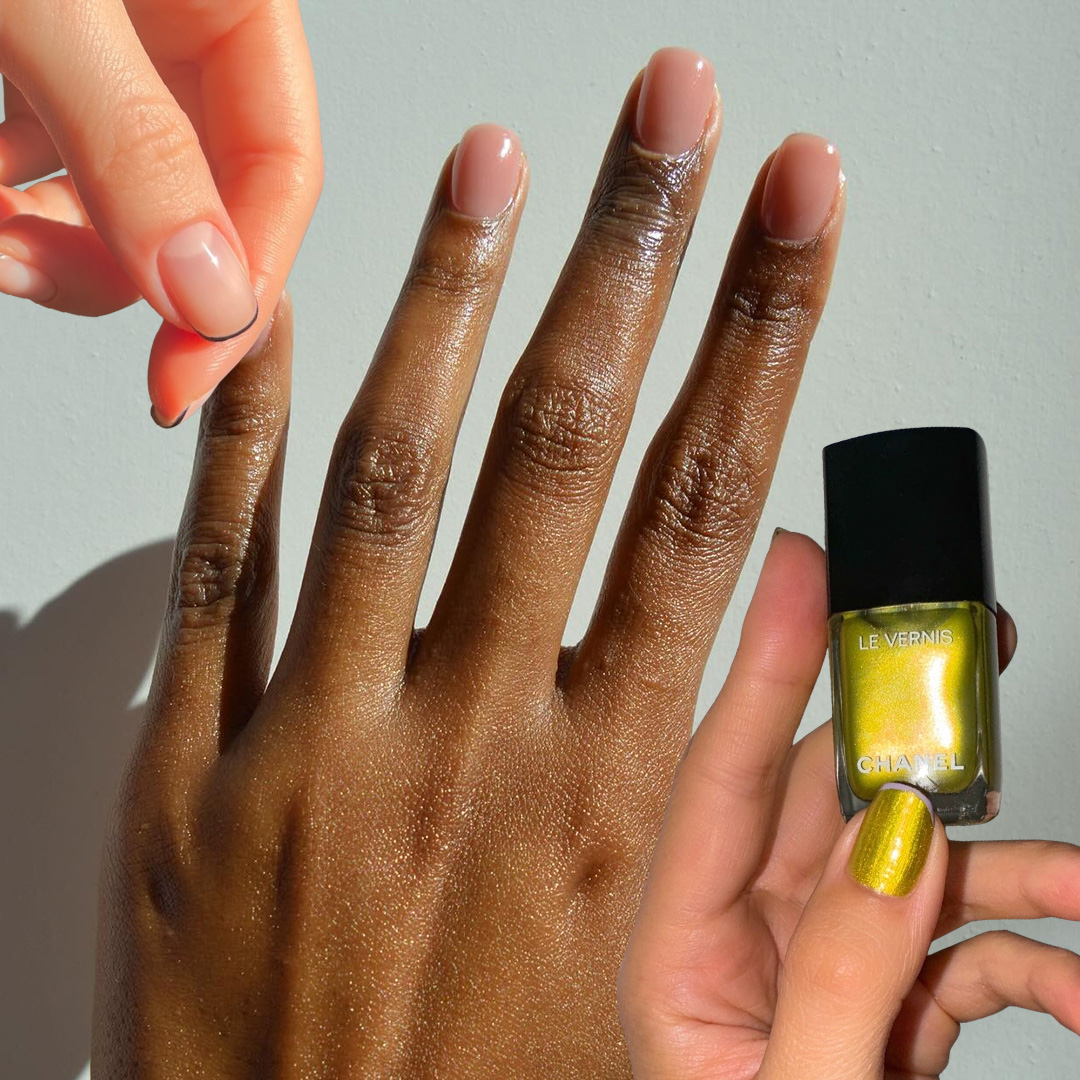 Celeb Manicurists Confirmed It—These 9 Budding Nail Trends Will Be Everywhere This Spring
Celeb Manicurists Confirmed It—These 9 Budding Nail Trends Will Be Everywhere This SpringTo the salon!
By Alyssa Brascia
-
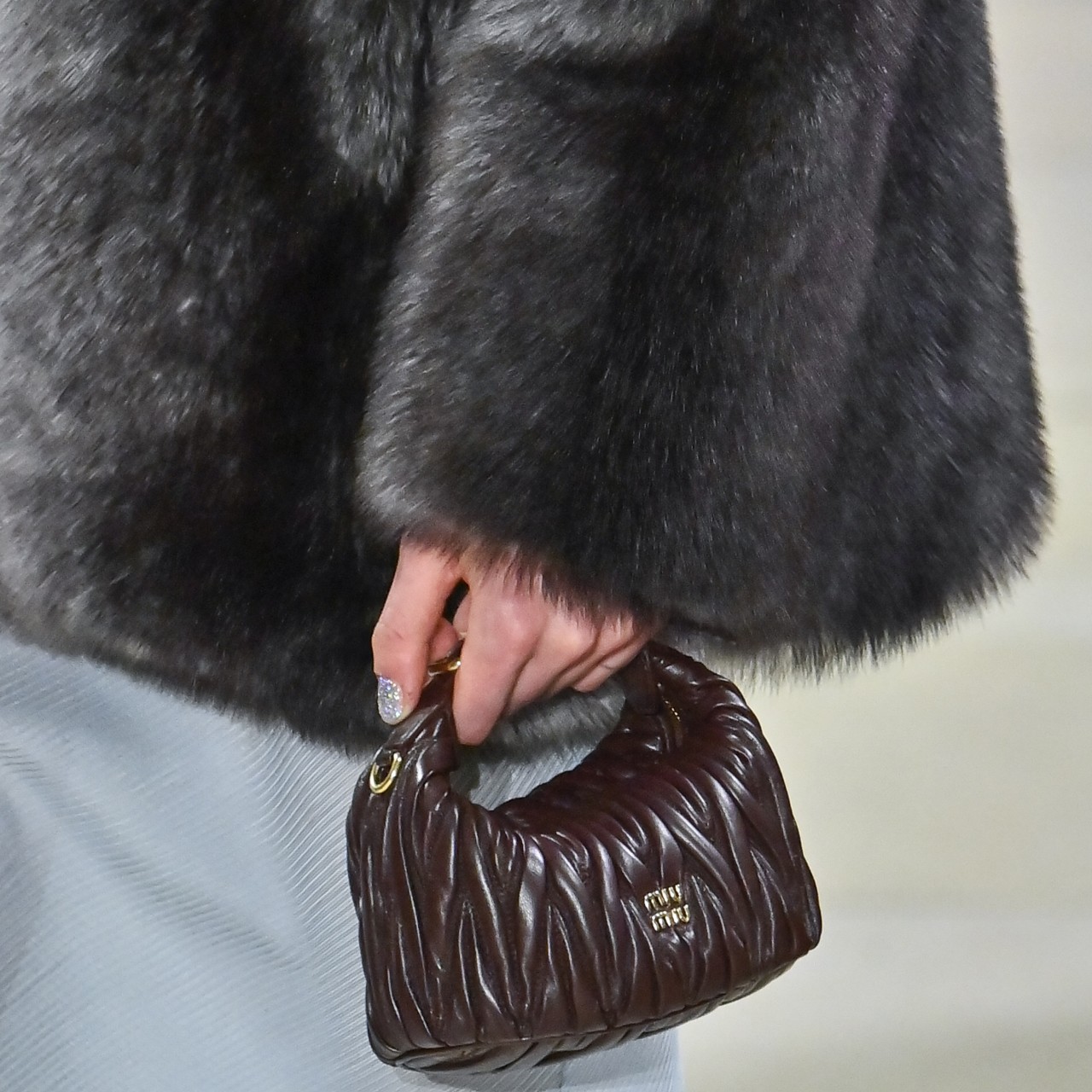 This Is the It-Girl Nail Trend Every Miu Miu Fan Will Wear
This Is the It-Girl Nail Trend Every Miu Miu Fan Will WearIt's far from demure.
By Jamie Schneider
